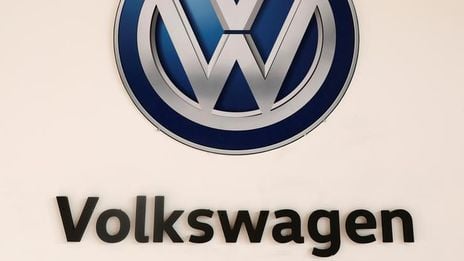The deal, which is expected to include a guilty plea by the German company or one of its corporate entities for its conduct in misleading regulators about diesel emissions, comes as the automaker seeks to move past its "dieselgate" scandal.
Analysts welcomed that a settlement looked set to be reached before President-elect Donald Trump takes office on Jan. 20, saying it would mark a milestone in VW's (>> Volkswagen AG) efforts to overcome its biggest-ever corporate scandal.
"There is apprehension in the market that Trump may become an unpredictable president and turn against non-U.S. companies," said Bankhaus Metzler analyst Juergen Pieper. "The deal is not cheap but it gives clarity to investors and relief to VW."
As part of a settlement, VW would agree to significant reforms and face oversight by an independent monitor.
A spokesman at VW's base in Wolfsburg declined to comment.
The deal with the Justice Department comes as the carmaker aims to rebuild its long-struggling business in the United States, where the decline in VW brand sales last year accelerated to 8 percent.
Europe's largest automaker is striving to revive its fortunes in the wake of the dieselgate scandal by developing a new modular platform for mass producing electric cars and by embracing automated driving to become a leader in green transport by 2025.
VW admitted in September 2015 to installing secret software in hundreds of thousands of U.S. diesel cars to cheat exhaust emissions tests and make them appear cleaner than they were on the road, and that as many as 11 million vehicles could have similar software installed worldwide.
It's still not clear where criminal investigations into the responsibility of individual managers will end after a second VW employee was charged by U.S. prosecutors on Monday with conspiracy to defraud the United States over VW's emissions cheating and the automaker was accused of concealing the cheating from regulators.
In Germany, state prosecutors are investigating whether former CEO Martin Winterkorn misled investors by withholding information about the scale of its problems with U.S. regulators. Prosecutors are also investigating the roles of chairman Hans Dieter Poetsch, previously finance chief, and VW brand head Herbert Diess.
VW has repeatedly said no current or former board members were involved in the cheating and that it did not release information sooner because it expected to reach a negotiated settlement with U.S. regulators.
The company has agreed to spend up to $17.5 billion in the United States to resolve claims by U.S. regulators, owners and dealers and offered to buy back nearly 500,000 polluting vehicles.
Pieper, who has a "buy" recommendation on VW stock, said with 31 billion euros (27.19 billion pounds) of net liquidity at the end of September, VW was able to cope with the cost of the dieselgate scandal, which he expects to reach 30 billion euros.
VW would face major financial difficulties if the European Commission, governments and consumer groups were to succeed in pushing VW to grant redress to owners of affected diesel cars similar to that agreed in the United States, said Pieper.
VW said earlier on Tuesday it had record group sales in 2016 of 10.3 million vehicles, including a 12 percent jump in December. That figure should put VW ahead of Japanese rival Toyota Motor Co (>> Toyota Motor Corp) as the world's largest car producer by volume for the year.
(Reporting by David Shepardson in Detroit, Andreas Cremer in Berlin and Ilona Wissenbach in frankfurt; Editing by Jeffrey Benkoe and Mark Potter)
By David Shepardson





